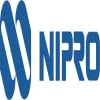Dive Brief:
- Rick Bright, director of the Biomedical Advanced Research and Development Agency, claimed Wednesday he was forced out of his position leading the organization, which plays a key role in coordinating and funding private sector efforts to develop new drugs and vaccines for infectious diseases like the new coronavirus.
- His abrupt departure, which came as a significant surprise given BARDA's accelerating and high-profile coronavirus work, was the result of "clashes" with political leadership at the Department of Health and Human Services over the use of unproven malaria drugs to treat COVID-19, Bright said in a statement issued Wednesday by the law firm Katz Marshall & Banks.
- President Donald Trump and several of his political allies have regularly promoted the drugs as effectual against the new coronavirus, although the evidence generated to date is inconclusive at best. STAT first reported news of Bright's departure on Tuesday, while The New York Times on Wednesday reported Bright's statement, which BioPharma Dive also obtained.
Dive Insight:
Bright's apparent ouster would mark a dramatic escalation in tension between the White House, which craves the fast arrival of a treatment for COVID-19, and the scientific community, which is largely reluctant to promote any drug before sufficient evidence proves its benefit.
Chloroquine and hydroxychloroquine, two decades-old malaria pills, have become a flash point in that conflict and, Bright claims, a factor in his removal as director of BARDA, a top research agency at HHS.
"I believe this transfer was in response to my insistence that the government invest the billions of dollars allocated by Congress to address the COVID-19 pandemic into safe and scientifically vetted solutions, and not in drugs, vaccines and other technologies that lack scientific merit," he said in the statement.
Bright accused the administration of putting "politics and cronyism" ahead of science, saying he "resisted efforts to fund potentially dangerous drugs promoted by those with political connections."
On Tuesday, Bright was removed as director of BARDA and reassigned to a small role at the National Institutes of Health, working as part of a private-public partnership focused on hastening development of COVID-19 treatments.
Gary Disbrow, currently with the Office of the Assistant Secretary for Preparedness and Response, BARDA's parent organization at HHS, will take over, a spokesperson confirmed to BioPharma Dive on Tuesday.
"Dr. Bright has departed BARDA to NIH where he'll work on development and deployment of novel point-of-care testing platforms," the spokesperson said in a follow-up statement on Wednesday.
Bright had requested the emergency authorization recently granted by the Food and Drug Administration for two versions of hydroxychloroquine, the spokesperson added. That authorization allowed the federal government to distribute donated supplies of the drugs to states.
Politico reported Bright's dismissal as director of BARDA stemmed in part from ongoing arguments with Robert Kadlec, the assistant secretary of emergency and preparedness and Bright's superior.

Bright has been with BARDA since 2010, serving as the agency's division head for influenza and emerging infectious diseases. A trained immunologist and virologist, Bright previously worked for the Centers for Disease Control and Prevention as well as served as an advisor to the World Health Organization and to the Department of Defense.
"My professional background has prepared me for a moment like this — to confront and defeat a deadly virus that threatens Americans and people around the globe" Bright said in his statement.
Through his attorneys, Bright will request the HHS Inspector General investigate his departure and will ask the Office of Special Counsel to seek a stay of his termination as BARDA director.
Since February BARDA has been at the center of the U.S. government's efforts to hasten development of vaccines, drugs and diagnostics for SARS-CoV-2, as the coronavirus is officially called.
Over a three-month span, the agency, which Bright has led since 2016, announced collaborations with some 18 companies, including early vaccine leader Moderna as well as large pharmaceutical companies Sanofi, Johnson & Johnson and Roche.
While drugmakers have announced research programs on their own, BARDA appears to be playing a critical role in accelerating those efforts. A recent grant of up to $483 million to Moderna, for instance, is allowing the biotech to move forward with vaccine production in parallel to testing — a risky approach that the company would be unlikely to pursue without a government backstop.
Together with J&J, BARDA is party to an even larger commitment of $1 billion in funding to be spent on vaccine research and clinical testing.















